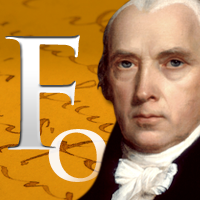BreezeWood
VIP Member
- Oct 26, 2011
- 17,465
- 1,416
- 85
What is it that you think I didn't answer? Do you even know?
they are called the civil war amendments - where you got your ass blown off.
Follow along with the video below to see how to install our site as a web app on your home screen.
Note: This feature may not be available in some browsers.
What is it that you think I didn't answer? Do you even know?
That's not anything like what he created. Perhaps you should do some research. There is no refutation of Judaism. The book ends with Jesus' death. There are no supernatural occurrences, no angels regarding his birth etc. Your interpretation is way off target.
You used the word aimless, so wonder would not work. You can't "wonder aimlessly". The Jews wandered in the desert, not wondered.
You can however wander aimlessly, which I am sure you do on a regular basis.
well, not everyone wonders in the desert, aimlessly and do attempt to know the truth - recorded history can help.
Bullshit. No law means no law. That prohibition is in no way limited to the declaration of a national religion at all. It is simply not the purview of the government to decide what is or is not religious in the first place.What this means, to those with any historical perspective, is that Congress has no power to declare a national religion,
Did you not write this in your Post #713? (emphasis mine):That you even wrote that sentence tells me you don't even bother to read what I write.
I have NEVER wanted a theocracy, would never consider it. Why? Because it is not good for theocracy. It doesn't help secular government either. I am very much in favor of ALL citizen participating in democracy with no intimidation by anyone.
The Church is the cumulative body of who believe in Jesus the Christ and have accepted him as their personal savior.again, what is a church - in response to your self serving assertion the gov't and church are not equally distinguishable.
So quote the sentences you think pertinent to support your position?I think I will rely on the words of the founding fathers. The link I provided was from the Washington and Lee Law Review is based upon documented historical facts and the words of the founding fathers.
Actually I didn't. I addressed the establishment clause was originally intended to only apply to the federal government and then in 1947 SCOTUS applied to the states.
That is the epitome of stupid! Congratulations!wandering - is aimless ... one can wonder aimlessly than to "attempt to know the truth". no time limit, 2000 years as their excuse.
of course, a christian most likely would not know the difference.
It is incredible that you have no concept of the discussion. Were you injured in a accident while attempting to tip cows?bible belt is nationwide ... the same reflections of christianity date back to the 4th century - in no time throughout history have the desert religions not been to the forefront of persecution and victimization of the innocent - home boy.
Not until SCOTUS ruled it that way because at least two established state religions continued to exist (7 years and 9 years) after the 14th was ratified by the states.

wandering - is aimless ... one can wonder aimlessly than to "attempt to know the truth". no time limit, 2000 years as their excuse.
of course, a christian most likely would not know the difference.
Are you saying it was the founder’s intent to protect citizens from Federal Police busting into people’s homes without a warrant, but state police could do it with impunity:
All of the above, plus as Paul mentions in his Letter to the Corinthians that God's covenants are written on the our hearts. God is love and goodness, perfect, and these are our models, the targets. God is also free and he created human beings in his image and so we, too, are designed for freedom. People of faith are taught to discern the will of God and to follow it. To guide us we have the Commandments and the Beatitudes to guide us along with these questions: What will be the most loving? What is ethically better? What allows for the most freedom? This means searching our hearts.How do assume to know God's will? Who told you what to believe? does God instruct your personally or are you assuming so from your religious instruction?
Read it again, this time with the emphasis on none-the-less have an equal voice and an equal duty to this secular democracy. . ."Did you not write this in your Post #713? (emphasis mine):
"And I want it understood that Christians are citizens wo do want a theocracy, but none-the-less have an equal voice and an equal duty to this secular democracy. . ."
What conclusion should I draw from that other than you, a Christian, want a theocracy?
Thomas Jefferson and many of his contemporaries understoodSo quote the sentences you think pertinent to support your position?
Thomas Jefferson
Not so fast Saint_DingThomas Jefferson and many of his contemporaries understood that the natural rights of man depended upon teleological considerations. So viewed, and accepting the premise that man's goal is being. with his Creator for eternity,
again, what is a church - in response to your self serving assertion the gov't and church are not equally distinguishable.
The Church is the cumulative body of who believe in Jesus the Christ and have accepted him as their personal savior.
That is the epitome of stupid! Congratulations!